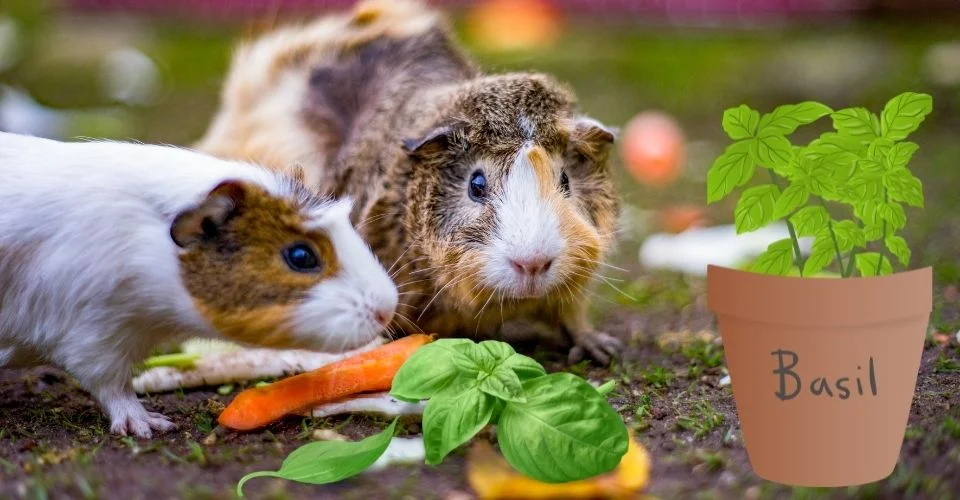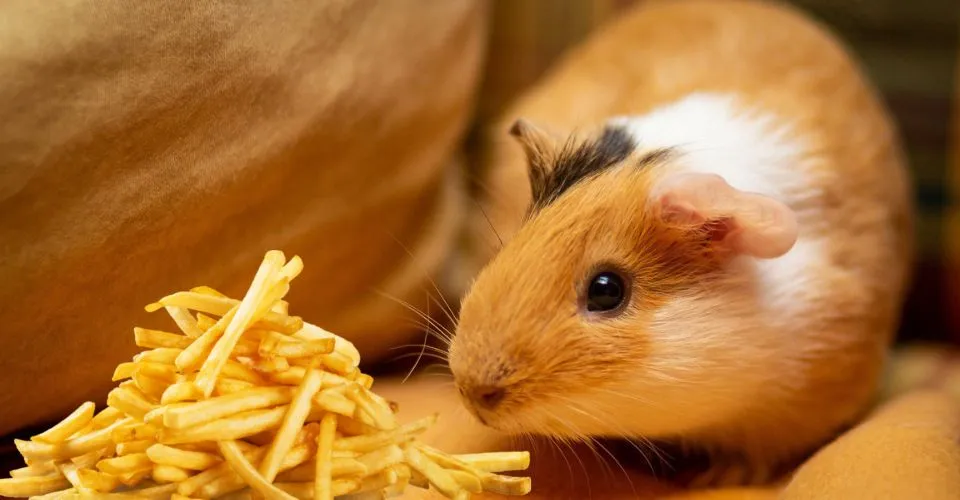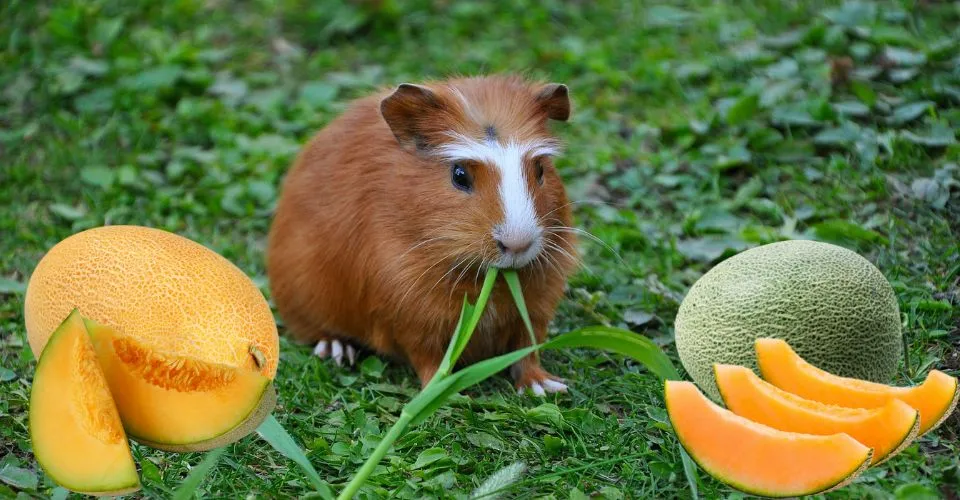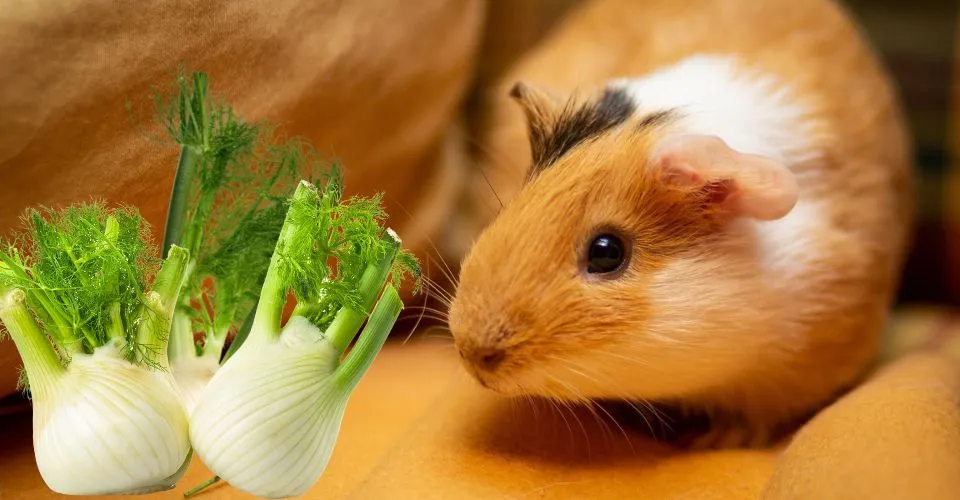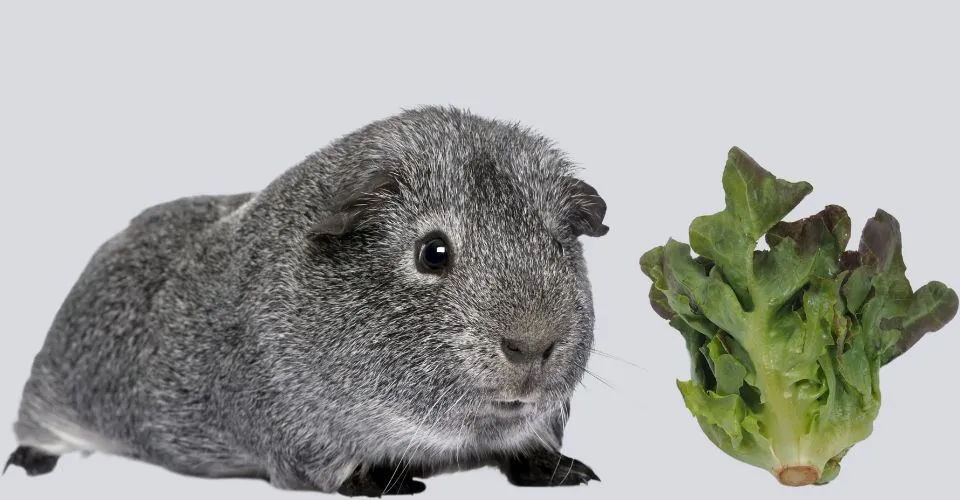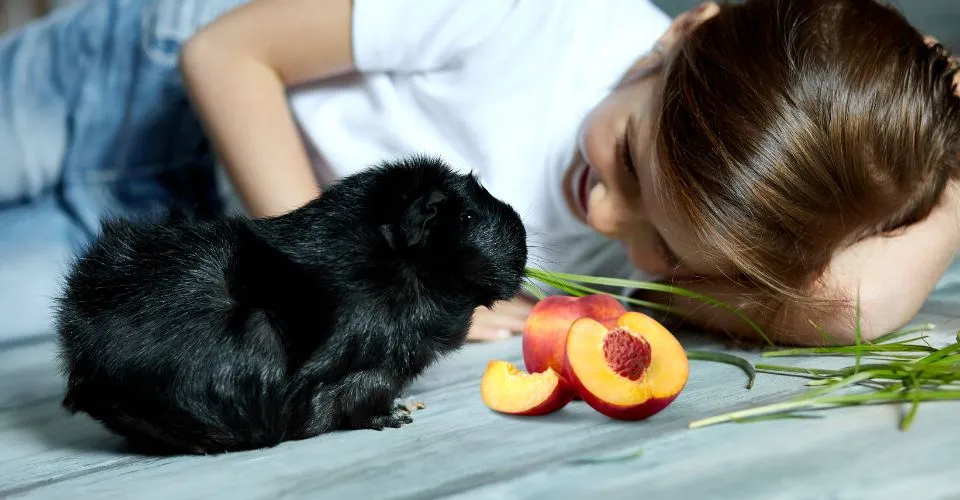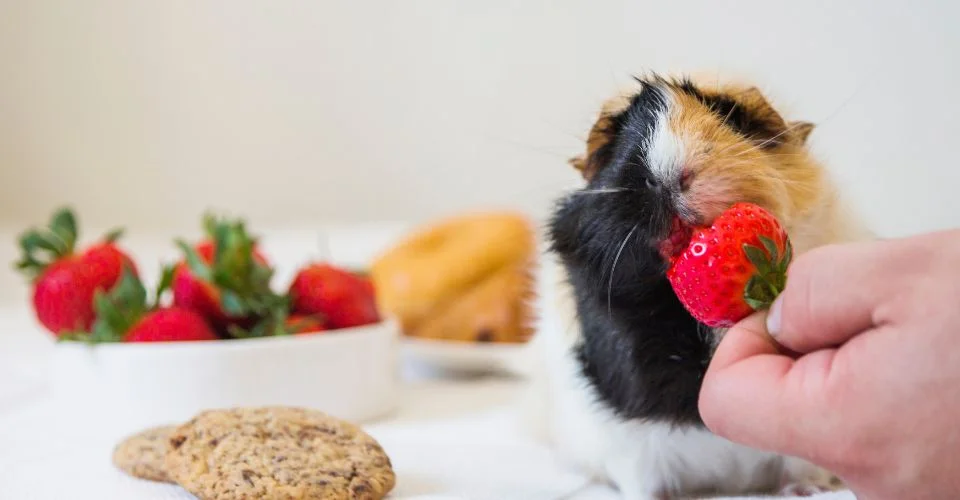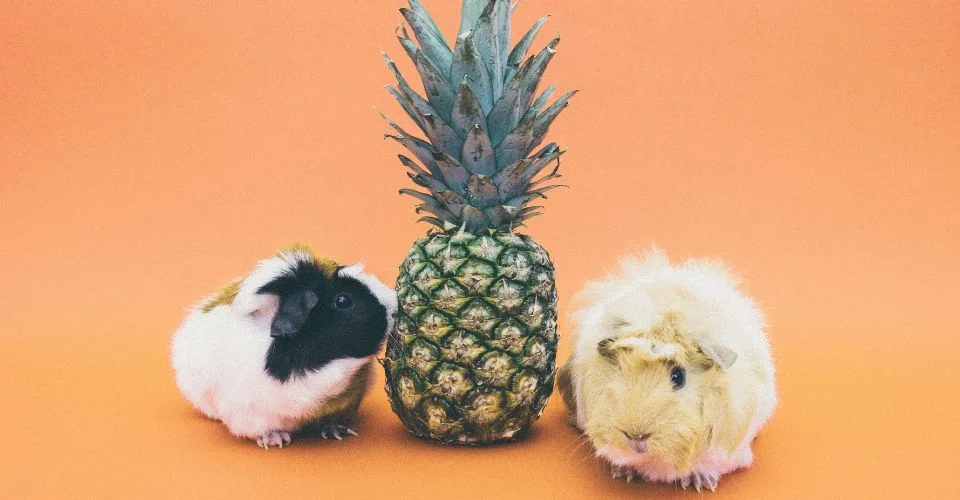Basil is a culinary herb belonging to the family Mint (Lamiaceae). It is a delicate herb that can easily be grown in your garden, windowsill, or a small pot. It is a versatile ingredient that is an essential ingredient in tomato sauce and a must-have pizza topping. One can say that it is one of those ingredients that have the ability to make just everything taste better. Basil can be found in every second kitchen American kitchen and is treated as an essential ingredient in most dishes. But what about fur babies? Can guinea pigs eat basil?
Guinea Pig Diet
Guinea pigs are natural herbivores. Meaning that their diet is based on plant-based foods. While in the wild, guinea pigs fulfill all their nutritional requirements b grazing and foraging for food. But in captivity, the responsibility of meeting all the nutritional needs of guinea pigs falls on the shoulders of their loving owners. In captivity, the ideal guinea pig diet consists of timothy hay and guinea pig pellets. In addition to unlimited access to hay, guinea pigs should also be given direct external sources of vitamin C. you can give either vitamin C tablets and vitamin C drops, or maybe both.
| Guinea Pigs Cannot Make their Own Vitamin C! Just like us, humans, our fur babies cannot make their own vitamin C and thus require an external source of it. If guinea pigs do not receive ample vitamin C in their diet, they will suffer from scurvy. |
In addition to the hay and pellets and vitamin C sources, guinea pigs should also be provided fresh fruits and vegetables to make meals a little interesting. Herbs also make a considerable and important part of the guinea pig diet. But what about basil—a culinary herb? Can guinea pigs eat basil? Or is it bad for guinea pigs?
Let’s discover without wasting any time.
Can Guinea Pigs Eat Basil?
Yes, guinea pigs can eat basil. Basil is one of the many herbs that are safe for guinea pigs to eat, provided it is being fed in moderation. Basil does not have a desirable vitamin and mineral ratio so it does not confer any considerable nutritional benefit to guinea pigs.
Nutrient Profile of Basil
To give you an idea about what nutrients ad vitamins basil has to offer to guinea pigs, we have listed some of the nutrients present in 100 grams of raw basil, according to USDA Food Central.
| Nutrient | Amount per 100 grams |
| Calories | 23 kcal |
| Protein | 3.15 g |
| Water | 92.1 g |
| Dietary fiber | 1.6 g |
| Sugars | 0.3 g |
| Phosphorus | 56 mg |
| Calcium | 177 mg |
| Potassium | 295 mg |
| Magnesium | 64 mg |
| Zinc | 0.81 mg |
| Vitamin C | 18 mg |
| Vitamin A | 264 µg |
| Potassium | 295 mg |
| Iron | 3.17 mg |
Is Basil Good for Guinea Pigs?
Ok, guinea pigs can safely eat basil, but does it have to offer any nutritional benefits to our little buddies. Below we have discussed some of the nutritional benefits of guinea pigs eating basil.
Rich in Protein and Fibers
Basil provides proteins and dietary fibers to guinea pigs, making sure they have ample energy for the day. Dietary fibers are also known to help with the processing of food and with the smoothening of bowel movements. If your guinea pig has constipation, eating a few leaves of basil may give him some relief.
Basil is loaded with antioxidants
Basil contains many useful antioxidants like vitamin a, beta carotene, lutein, and zeaxanthin, which help our guinea pigs stave off cancer and also delay the signs of aging in our piglets. Antioxidants actually help prevent the free radical damage, which is responsible for causing cancer. While vitamin A in basil, helps guinea pigs with inflammation, other antioxidants help with guinea pigs’ eyesight, bone strength, and maintenance of muscular health of guinea pigs.
Basil provides Zinc and potassium
Zinc and potassium are two great minerals present in basil. Where zinc helps guinea pigs with a speedy recovery from wounds, potassium helps them maintain their blood pressure in check. . Zinc also protects and strength the immune system of our guinea pigs. Zinc also helps guinea pigs maintain healthy DNA strands and strengthen immunity, especially pregnant piglets or their little pups.
Vitamin C helps prevent scurvy
Basil also contains a little amount of vitamin C—only 18 mg per 100 grams of raw basil. While this little amount of basil is not going to meet the vitamin C requirements of guinea pigs, however, it will help reduce the chances of scurvy in guinea pigs to some extent.
Low in fats and Calories
Loaded with other useful nutrients, basil does not contain many calories—100 grams of raw basil offers only 23 kcal. More so, it contains very little sugar content as compared to many fruits and veggies. Foods low in calories and sugar make a great treat for guinea pigs with weight problems.
Potential Risks Involved in Feeding Basil to Guinea Pigs
Basil is only safe for guinea pigs as long as it is being fed in moderation. When consumed in excess without any care, it may cause serious health issues. Below we have discussed some of the potential health risks associated with guinea pigs eating basil.
Bladder Stones and Urinary Problems
Basil contains a large amount of calcium and a considerable amount of phosphorous as well. The excess of these two nutrients can cause urinary problems in guinea pigs. the excessive calcium is not defecated but accumulated in the urinary bladder or kidneys, leading to the development of bladder or kidney stones. This makes the urinating process quite painful for our piglets.
Check out my post about Guinea pig urine color chart to find out what does pee of a guinea pig afflicted with urinary problems looks like.
| Don’t be careless about the calcium intake of your Guinea pig! Do not make the mistake of taking the excessive calcium intake of your guinea pig lightly. It can not only lead to the development of bladder and kidney stones, making urinating painful but can also lead to renal failure if left unattended. |
Gastrointestinal Issues
Let alone basil, eating any food i.e., arugula, corn, squash, collard greens, pineapples, or strawberries, in excess would lead to the development of gastrointestinal issues in guinea pigs. Guinea pigs would experience vomiting, diarrhea, bloating, and extreme gas (making guinea pig fart a lot). Therefore, while feeding fresh fruits and vegetables to your guinea pigs keep in mind that moderation is the key.
There Is not as much Vitamin C in Basil as in other herbs
While basil has a good amount of vitamin C—18 mg per 100 grams—it is quite less than many other herbs. For instance, parsley has around 7 times more vitamin C than basil. Similarly, thyme has to offer 9 times more vitamin C than basil. The point is, though basil contains vitamin C, it Is not enough for guinea pigs, making other herbs a better treat for guinea pigs.
How Much Basil Can Guinea Pigs Eat?
Basil does not make an ideal snack for guinea pigs as it contains a higher amount of calcium and very little amount of vitamin C. Therefore, you should never feed more than one or two leaves of basil to your guinea pig a few times a week—never in consecutive days. Eating basil in excess would lead to the development of kidney stones, which is quite painful for our piglets.
Final Verdict: Can Guinea Pigs Eat Basil?
Basil is a safe herb for guinea pigs to eat but it is not an ideal snack for them as it contains a high amount of calcium and a low amount of vitamin C. That said, basil can confer many health benefits to guinea pigs, provide it is being fed in moderation (not more than 2) to your guinea pig twice or thrice a week. Where the high fibers in basil help with bowel movement and antioxidants stave off cancer and strengthen the overall immune system of guinea pigs.
Check out other guides to what guinea pigs can or cannot eat:
